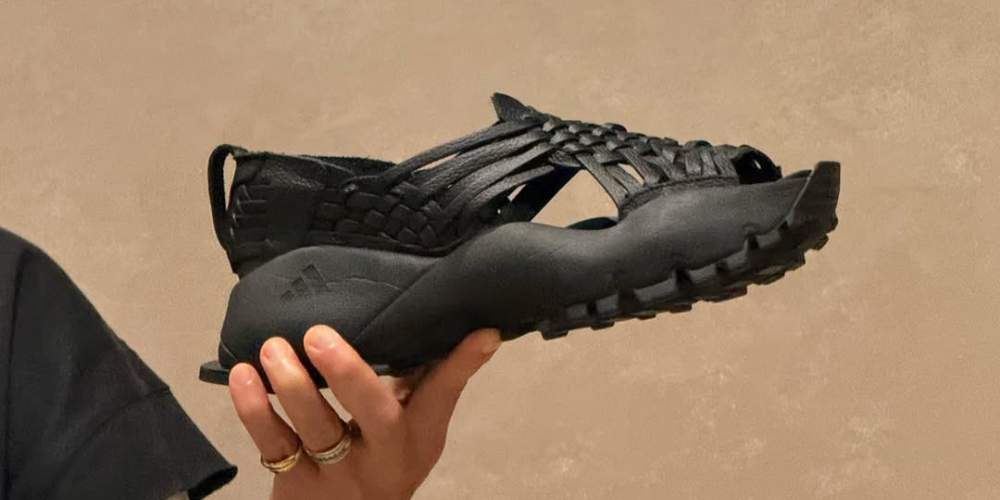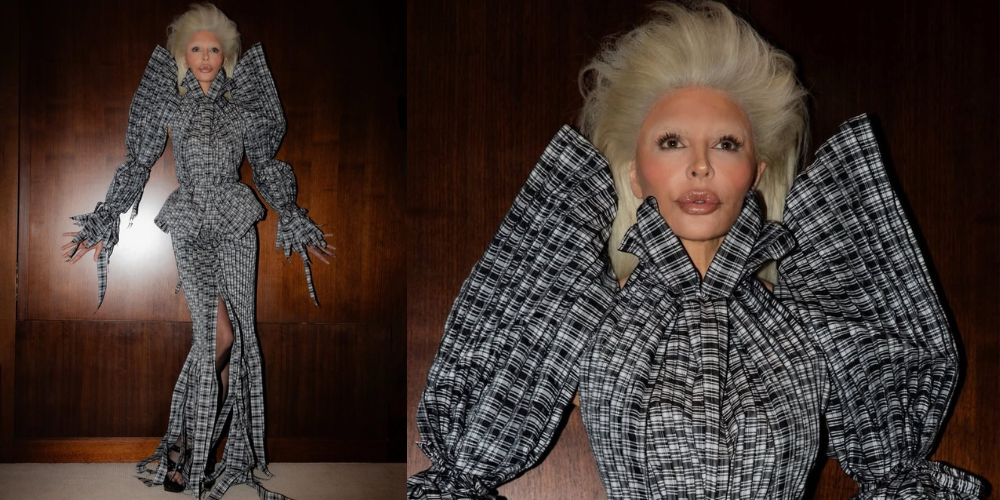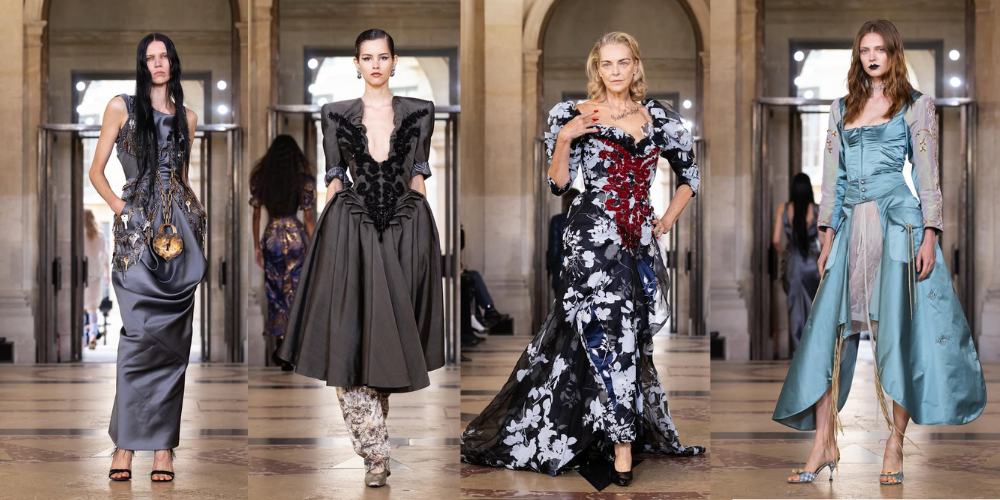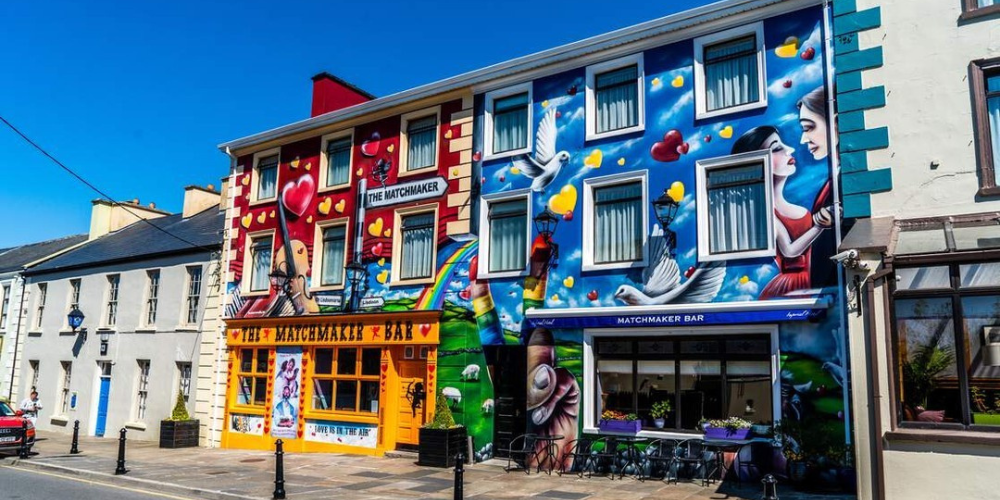Adidas recently launched the Oaxaca Slip-On, created in collaboration with American fashion designer Willy Chavarria. The shoe features a heavy sole, typical of a 1990s Adidas hiking model, and a woven black top inspired by the traditional huarache sandal, crafted by Zapotec artisans in Oaxaca.
Chavarria described the project as a blend of his Mexican American background and Adidas’ design history. He told Sneaker News that the slip-on reflected “a classic Chicano reference with the white sock.” However, the launch quickly shifted from celebration to backlash, as leaders in Mexico denounced the shoe for cultural appropriation.
Mexico’s Response to the Shoe
During a press appearance, President Claudia Sheinbaum publicly criticized the design while showcasing the Adidas Oaxaca Slip-On. She argued that brands such as Adidas profit from traditions that belong to Indigenous communities without proper recognition.
According to her, Oaxaca’s government had already begun discussions with the company to ensure communities received compensation for their cultural contributions. She also warned that if necessary, Mexico may take legal action.
Governor Salomón Jara Cruz echoed these concerns. He stated that the slip-on represented “plagiarism” of Oaxacan creativity. He emphasized that both tangible and intangible heritage needed respect and protection against exploitation.
Willy Chavarria Issues an Apology
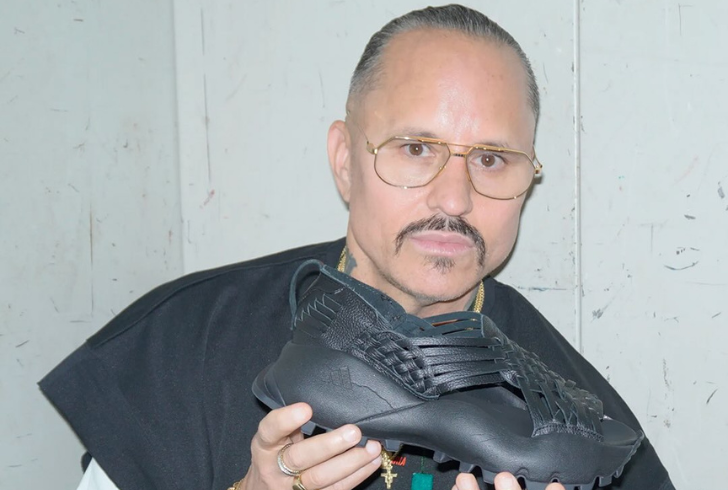
Instagram | @svdarabia | Willy Chavarria quickly apologized for failing to include the Oaxacan artisans who inspired his shoe.
Willy Chavarria, who grew up in a Mexican American household in California, responded quickly. In a bilingual statement addressed to the people of Oaxaca, he expressed regret that the shoe design failed to directly involve the artisans whose work inspired it.
“The vision was always to honor Oaxaca’s cultural and artistic strength,” Chavarria said, acknowledging that using the name without partnership did not meet the level of respect the community deserves. He noted the significance of Villa Hidalgo Yalalag, a village known for its huarache craftsmanship, and admitted that collaboration should have been part of the design process from the start.
Adidas Responds to Criticism
Adidas also issued an apology, recognizing the depth of Indigenous artistry in Mexico. The company stated that the Oaxaca Slip-On drew inspiration from Yalalag traditions and committed to opening dialogue with the community. While the brand did not confirm whether the shoe remained available for purchase, it promised to engage in respectful collaboration moving forward.
In its statement, Adidas emphasized its dedication to valuing cultural heritage and highlighted the importance of building partnerships that properly credit Indigenous artisans.
A Broader Pattern of Cultural Disputes
This dispute is not an isolated case; in fact, Mexico has frequently defended Indigenous designs when fashion houses have incorporated traditional motifs without acknowledgment.
For instance, in 2019, Mexico’s culture ministry criticized Louis Vuitton after discovering a chair with Hidalgo-inspired designs. The brand later confirmed that it was working with local artisans to explore collaboration.
Later that same year, cultural minister Alejandra Frausto accused New York-based brand Carolina Herrera of using embroidery patterns from Mexican communities in its resort 2020 collection. The line showcased floral embroidery and bird motifs across gowns and coats, sparking debates about cultural ownership.
Ultimately, these incidents highlight Mexico’s firm stance on protecting Indigenous artistry from what officials describe as exploitation by global companies.
The Designer’s Perspective
Willy Chavarria has often incorporated Mexican American culture, sexuality, and immigration themes into his fashion work. As a former senior executive at Calvin Klein, he explained that working with global companies like Adidas allows him to amplify his creative message.
He noted that he aims to spotlight human dignity and cultural pride through his designs. In his words, collaborations with major brands can help uplift voices and traditions that might otherwise remain unseen.
Moving Forward With Respect
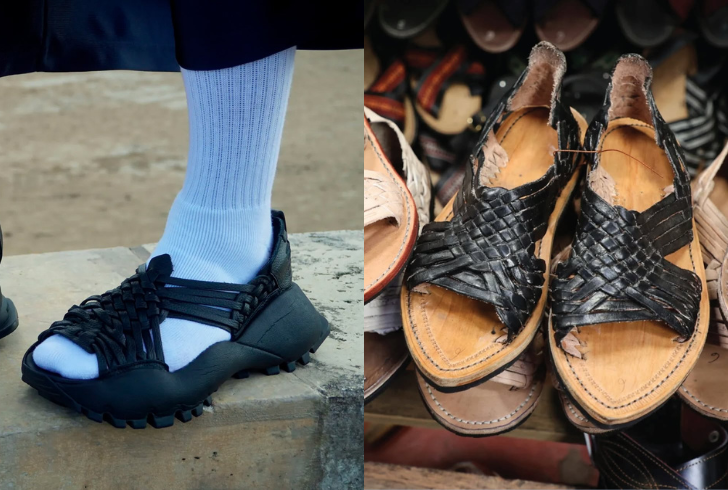
Instagram | @svdarabia | @archived.dreams | Adidas looks to rebuild trust through dialogue with Oaxaca artisans.
The Adidas Oaxaca Slip-On controversy underscores a growing global conversation around cultural appreciation versus appropriation. While the shoe was intended as a tribute, its rollout without collaboration stirred anger, proving that acknowledgment matters as much as inspiration.
By committing to dialogue with the Zapotec artisans of Oaxaca, Adidas and Chavarria now have the chance to repair relationships and set a standard for how global fashion can respectfully draw from Indigenous traditions.
Protecting Cultural Heritage in Fashion
This episode adds to the ongoing debate about how brands approach Indigenous culture. Mexico’s leaders have made clear that the intellectual property of Indigenous communities holds equal weight to that of corporations. Their response demonstrates a determination to safeguard traditions while pushing companies toward fairer, more transparent practices.
The controversy makes one lesson clear: true respect for cultural heritage requires collaboration, not imitation. When companies engage directly with artisans, they not only celebrate history but also support the communities keeping those traditions alive. Adidas’ apology signals a step in that direction, but future actions will determine whether it leads to meaningful change.


